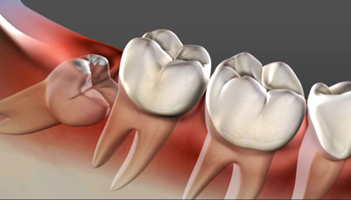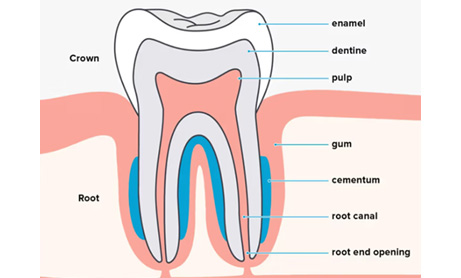
Tooth pain is considered to be one of the most painful sensations experienced. Toothache can sometimes start suddenly or intensify at night time, when an appointment with a dentist may not be possible immediately. In such a situation, there are a few home remedies that will help alleviate the pain.
Home remedies for toothache
Over-the-Counter Pain Relief
Over-the-counter (OTC) pain relievers such as Ibuprofen, Diclofenac, Aceclofenac, etc., belonging to the NSAID category, are the go-to solutions for reducing tooth pain and inflammation. These are also anti-inflammatory, making it ideal for cases where swelling accompanies the pain. Be sure to follow the recommended dosage on the packaging and avoid exceeding the daily limit. These medicines may cause acidity; take them after a meal and include an antacid if needed. If you are advised to refrain from NSAIDs, stronger dose of Paracetamol is another option for temporary pain relief from a toothache.
Clove oil
Clove oil contains eugenol, a natural anaesthetic that can reduce the tooth sensitivity. It is a proven remedy that is effective for temporarily relieving tooth pain caused by cavities or nerve exposure. Soak a cotton ball in a small amount of clove oil. Gently dab it onto the painful tooth and leave it in place for a few minutes.
Cold compress
Applying a cold compress to the outside of your cheek near the affected area can reduce the pain and swelling. This simple yet effective method is particularly helpful for toothaches caused by trauma or abscess. Wrap ice or an ice pack in a cloth and apply it to the area that hurts for a few seconds in 15-minute intervals.
Salt water Rinse
This is one of the simplest ways to relieve tooth pain particularly caused by gum inflammation or infection. If you feel a swelling or heaviness in your gums, rinsing your mouth with warm salt water is effective to relieve the pain and pressure. Mix up to a teaspoon of salt in a glass of warm water. Swish the solution around your mouth for 30 seconds, focusing on the affected area. Repeat several times in a day.
Herbal Tea
Peppermint or Chamomile tea is known for its soothing properties. Apply a warm tea bag directly to the site of your toothache. This is not as effective as the other methods, but can be used as an adjunct to other efforts.
Elevate your head
Keep your head elevated when sleeping to prevent blood from rushing to your head, which can intensify tooth pain.
Avoid Trigger Foods and Beverages
Do not consume very hot, cold, or sugary foods and drinks, as they can aggravate the pain.
Medicated pastes and gels
Desensitising pastes help to relieve sensitivity by temporarily numbing the tooth nerve against sensitive signals from the tooth.
Medicated gels containing an anaesthetic agent such as benzocaine or lignocaine can help numb the pain from painful gums and ulcers.
When to call your dentist
If your toothache is severe or it manifests along with a more serious medical condition, it is crucial that you see a dentist to treat it properly. Many toothaches will require professional attention.
You should see a dentist immediately if you experience any of the following symptoms accompanying a toothache:
- fever
- trouble breathing or swallowing
- general pain that lasts more than one or two days
- swelling
- pain when you bite
- abnormally red gums
- foul-tasting discharge, or pus
Point to remember
Please note, these remedies will relieve the pain temporarily. They do not treat the cause of pain or prevent destruction of the tooth. A toothache often indicates a more serious issue, such as a cavity, infection, abscess, or fracture, all of which require dental treatment. Therefore, it is imperative to get a dental check up done, even if the pain goes away.
We are reachable 24/7 on 9821089434 in case of an emergency.









